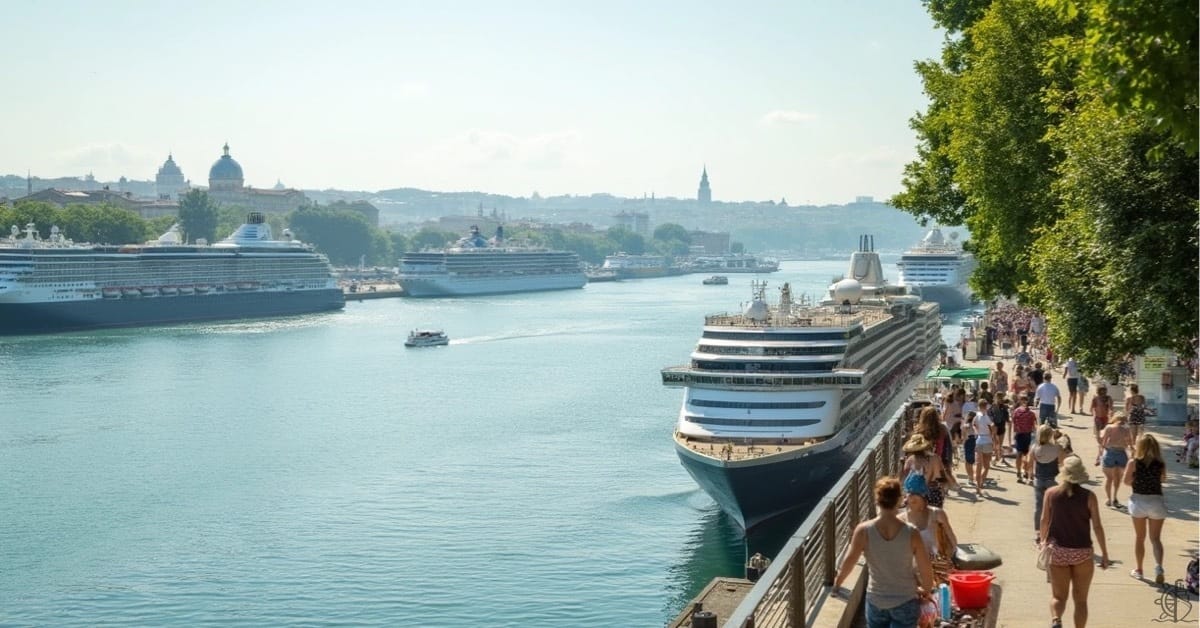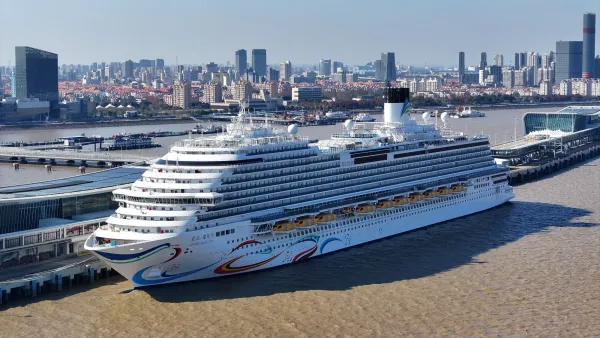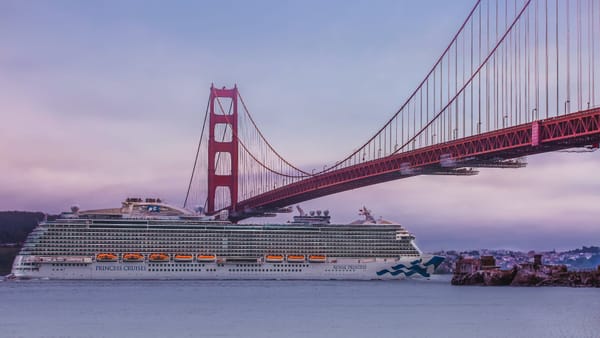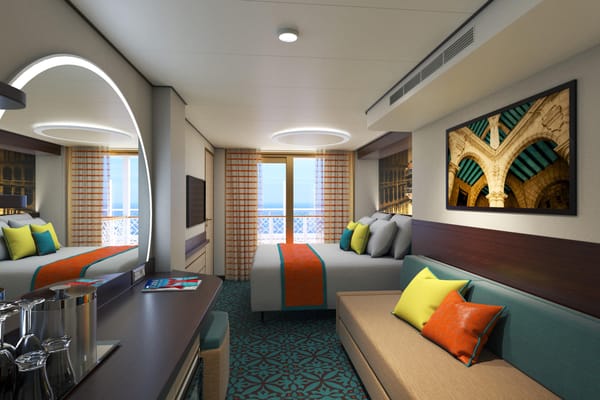Bordeaux may move cruise ships from downtown docks

In recent news, Bordeaux, a city in southwestern France known for its rich history and wine culture, is proposing a ban on cruise ships docking in its city center. This initiative, led by Mayor Pierre Hurmic, arises from growing concerns among citizens regarding the aesthetic impact and pollution caused by the influx of large cruise vessels. While the city currently permits around 40 cruise ships annually, the proposed ban would shift docking facilities two miles downstream from the downtown area, potentially affecting local tourism and businesses.
Bordeaux: A Historic Destination for Cruise Ships
Bordeaux's status as a UNESCO World Heritage Site adds to its allure, particularly at its current docking location at Port de La Lune. This prime spot provides access to the city's historical architecture and cultural sites, making it a popular destination for cruise travelers seeking to explore its charming atmosphere.
However, the presence of large cruise ships has raised concerns about visual disruption in this historic area. The mayor's comments highlight the growing discontent among residents as they find the juxtaposition of modern cruise ships with historic buildings increasingly undesirable.
The Proposed Changes in Docking Locations
The proposed relocation involves docking facilities being established on the right bank of the Garonne River, as opposed to the current location that is just a short walk from the vibrant city center. The new docking site may dampen the tourism experience since travelers would have to use bridges or other means of transport to reach key attractions.
With the shift in docking locations, the city aims to create more environmentally sound facilities and mitigate ecological concerns associated with heavy cruise traffic.
Split Opinions Among Residents
The community response to the proposed ban is mixed. Some residents support the initiative due to environmental considerations, while others express concern over potential negative repercussions on local businesses. Reports indicate that cruise passengers contribute significantly to the local economy by spending an average of €150 ($167 USD) during their visits, primarily on tours, shopping, and Bordeaux's cherished wine.
Potential Economic Impact on Local Businesses
If the cruise traffic is diminished, some business owners fear a decrease in revenue due to reduced passenger foot traffic in the city center. River cruises, which are not facing the same restrictions, continue to thrive, but this shift may lead to increased competition for local businesses that rely heavily on cruise tourism.
Similar Bans in Other European Destinations
Bordeaux's consideration of a cruise ship ban aligns with recent trends seen in other European cities. Cities such as Santorini, Greece; Palma, Majorca; and Valencia, Spain are also evaluating their approaches to cruise tourism, taking into account environmental and aesthetic concerns.
In North America, regions like Alaska and Maine have implemented restrictions, while Key West, Florida, has also taken similar steps to manage the impact of cruise passengers on local infrastructure.
Global Trends in Cruise Ship Regulation
As different destinations grapple with the balance of tourism and environmental sustainability, it's becoming increasingly common for cities to implement measures to limit the number of cruise vessels. For instance, in cities facing significant challenges posed by overcrowding and environmental impact, protests have occasionally arisen, reflecting public sentiment against large cruise ships.
Local Protests and Increased Fees
Some destinations have witnessed protesters blocking ships from docking, while others have begun to charge tourists higher fees to offset the costs associated with increased tourism strain. This trend raises questions about how cruise travelers perceive these bans and taxes amid an evolving tourism landscape.
As Bordeaux moves forward with the proposal, it serves as a reminder of the ongoing conversations around the future of cruise tourism in historic and environmentally sensitive urban areas.
Conclusion
The proposed ban on cruise ships from Bordeaux’s city center aims to address community welfare while preserving the city’s historic charm. As the dialogue continues, the outcomes may shape not only the local economy but also the way cities worldwide approach cruise tourism in the coming years.
FAQs
1. Why is Bordeaux considering a ban on cruise ships?
Bordeaux is considering the ban due to concerns about pollution, aesthetic disruptions, and the overall impact on the city’s historic atmosphere.
2. How would the proposed docking changes affect cruise passengers?
The changes would potentially require cruise passengers to travel further to reach the city center, impacting convenience and accessibility for exploration.
3. What is the economic impact of cruise tourism in Bordeaux?
Cruise passengers reportedly spend an average of €150 during their visit, which significantly supports local businesses, particularly in retail and wine tourism.
4. Which other cities have implemented similar cruise restrictions?
Cities such as Santorini, Palma, and Valencia are also exploring measures to manage cruise ship traffic and its impact on local environments.
5. What are potential alternatives for cruise passengers if the ban is enacted?
Travelers may consider river cruises or other rural destinations that offer different experiences apart from those related to large ocean cruise ships.




